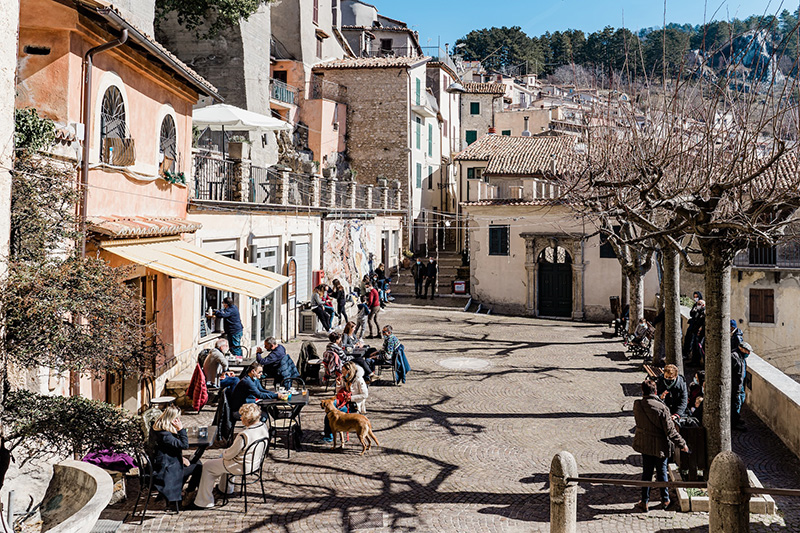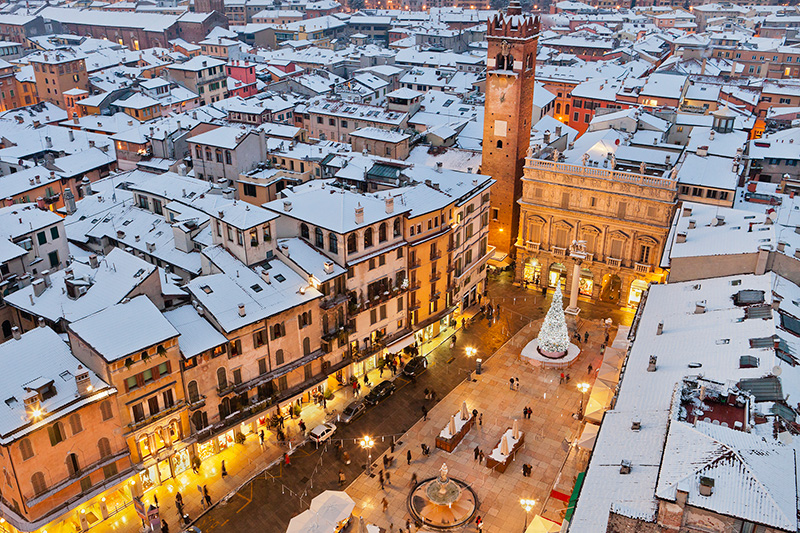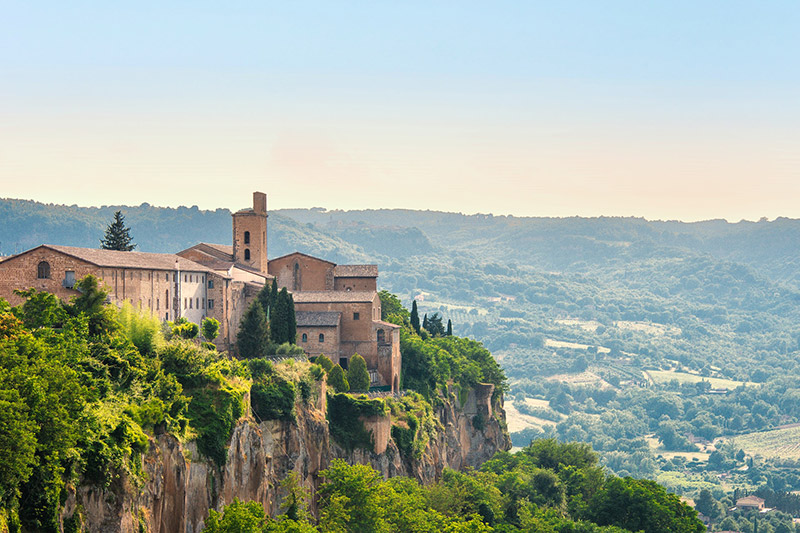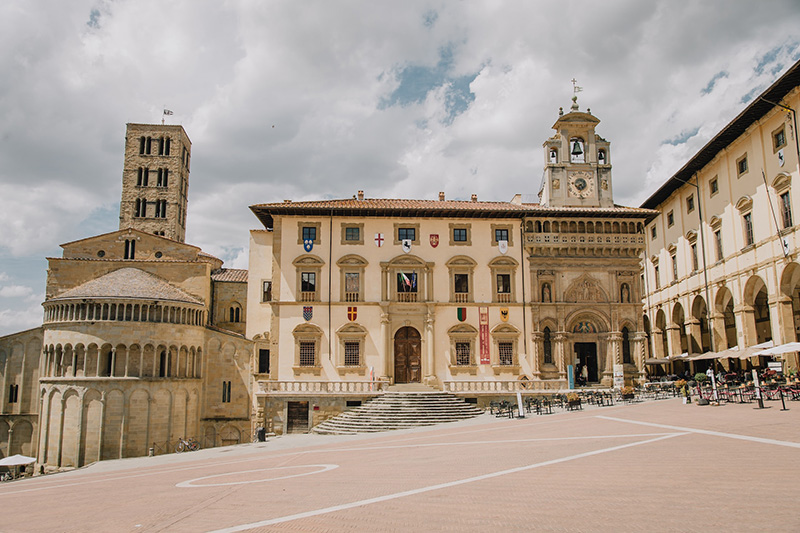Living in Italy is like stepping into a picture, a burst of culture, history and natural beauty. From magnificent ancient ruins to world-class cuisine and breathtaking scenery, life in Italy offers a unique and rewarding experience.
However, beyond the postcard-worthy landscapes, what is life in Italy really like? Here is a glimpse into everyday life.
Living in Italy, you are constantly immersed in centuries of rich history and culture. Whether you stroll the quaint streets of Rome or visit the magnificent Renaissance architecture of Florence, history surrounds you. Italians are extremely proud of their cultural heritage, and that shows in the careful preservation of historic sites, frequent cultural festivals and a vibrant arts scene.
Italian cuisine needs no introduction. Food is a way of life in Italy. Each region has its own unique dishes, from hearty lasagna in Emilia-Romagna, delicious truffles in Umbria, to fresh seafood in Sicily. Dining in Italy is a slow and savory event, often celebrated with family and friends. Fresh local ingredients and care in the preparation of meals give Italian cuisine an incomparable character. Living in Italy means getting used to the idea that meals can last for hours and are always accompanied by fine local wines.
Another aspect of life that locals cherish is Italy’s diverse landscape. From the sunny beaches of Sardinia, the rolling vineyards of Tuscany, the rugged mountains of Trentino-South Tyrol, to the serene lakes of Lombardy, Italy has something for everyone. Italians love the outdoors, enjoying everything from a relaxing stroll (night walk) to more strenuous activities like skiing, hiking and biking.
Work-life balance
Italy has a different rhythm of life than many other Western countries. While cities like Milan are busy and business-oriented, the Italian way of life in general leans towards enjoying life and cherishing relaxation. Shops and businesses may close for a few hours in the afternoon for riposo (rest) and weekends are usually spent with family time and entertainment. In addition, Italy has a lot of public holidays or “festa”, allowing regular extended holidays to relax and enjoy life.
Italians are known for their warmth, passion and generosity. From bustling cities to quiet countryside, you’ll find a sense of community and strong family ties. Neighborhoods in Italy are often like extended families, where everyone knows each other and social life is considered very important. Italian is the national language, and although English is understood in major cities and tourist areas, being fluent in Italian can make living and interacting with locals easy and enjoyable. more taste. Italians appreciate any effort to speak their language and are usually more than happy to help you learn.
Challenge
Living in Italy also comes with its challenges. Bureaucracy can be frustrating and complicated. Whether it’s setting up utilities, the internet, or dealing with government offices, be prepared for a lot of bureaucracy. In addition, while the Italian economy is gradually improving, the labor market remains difficult, especially for young people, and wages may be lower than in other Western European countries.
Despite these challenges, many agree that the Italian way of life – la dolce vita or “the sweet life” – with its emphasis on family, food, and an appreciation of the beauty around you, will enrich the experience of living in Italy. As with any country, doing research, maybe visiting first and maybe even learning a bit of a language is essential to get the most out of your experience living in Italy.
Public transport
Italy has a strong public transport system. Its extensive rail network connects not only major cities but also small towns, making it easy to explore the country. City residents enjoy bus, tram and metro services. However, transportation strikes (sciopero) can sometimes disrupt services, so always have a backup plan. Education and health
Italy has a strong education system with both public and private schools, and several Italian universities have excellent reputations. Teaching is in Italian, although international schools offer classes in English and other languages.
The Italian healthcare system is well known and offers universal coverage to all residents. While public hospitals and clinics provide quality care, the system can be slow and bureaucratic. Therefore, many foreigners choose private health care, especially specialized treatment. Italy is famous for its art of living and recreational activities. Football is the nation’s favorite pastime, and conversations often revolve around the latest match. For others, entertainment means enjoying Italy’s many cultural treasures, with its numerous museums, art galleries, concerts and opera houses.
Festivals and public celebrations are an integral part of Italian life. From the colorful Venice Carnival, the ‘Scoppio del Carro’ that explodes in Florence, to the ‘Ferragosto’ celebrations in the summer, there’s always a party to look forward to. These events are marked by enthusiastic celebrations, traditional music, dancing and, of course, food.
Italy’s climate varies from north to south and between coastal and inland regions. Northern Italy experiences cold winters and hot summers. Central Italy has a temperate climate, with rainy winters and hot, dry summers. Southern Italy and the islands have hot, dry summers and mild, wet winters.
It is an experience that can be difficult but at the same time extremely rewarding. As the Italians say, “Vivi, Ama, Rid” – “Live, Love, Laugh”. These are words that truly summarize the spirit of Italian life.
Photo by Gabriella Clare Marino



